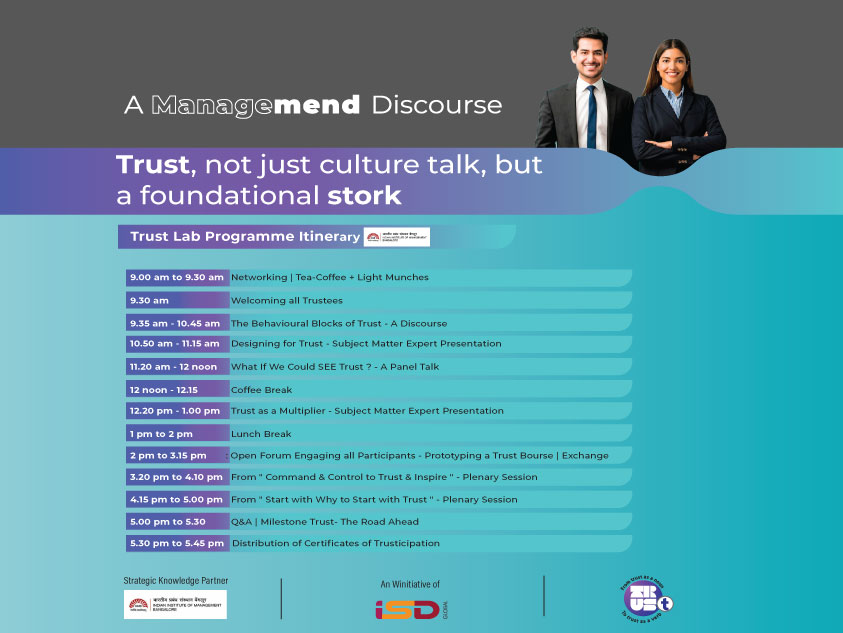Stephen Trzeciak, a critical care doctor at Cooper University Health Care in Camden, N.J., has worked long hours helping the sick and injured. But it was a conversation with his young son that sent the self-described research nerd in search of something more to define his work. After sifting through tons of data, Trzeciak realized that a lack of compassion tops the long list of challenges facing the health care industry, and he wants to change that. He recently gave a TEDxPenn talk about the “compassion crisis,” explaining that it takes as little as 40 seconds of undivided attention for providers to connect with their patients and improve health outcomes. Trzeciak recently spoke on the Knowledge@Wharton show on Wharton Business Radio on SiriusXM. (Listen to the full podcast above.)
An edited transcript of the conversation follows.
Knowledge@Wharton: You were inspired to focus on compassionate care after an interaction with your son when he was in the seventh grade. Tell us about that.
Stephen Trzeciak: He came into my study one night and said, “Dad, can you help me prepare a talk?” I thought it was a great mentoring opportunity, father-son bonding. Little did I know what was in store. He puts the assignment down on my desk. It reads: “What is the most pressing problem of our time?” I don’t know what you were doing in the seventh grade, but that’s not what I was doing in seventh grade.
I helped him try to figure out what was the most pressing problem of our time from his lens of experience as a 12-year-old. Then I realized that I’m not taking my own advice. I practice in the Intensive Care Unit. I do clinical research. I’m a physician scientist. What I was working on was super meaningful, but if I’m being honest, it wasn’t the most pressing problem of our time. I thought about it and thought about it, and then I found it: There is a compassion crisis in health care. The question is, does compassion really matter? I did a systematic review of the biomedical literature, and what I concluded is that compassion matters for patients, for patient care, and for those who care for patients.
“There’s rigorous data to show that health care providers spend more time looking into their computer screens than looking patients in the eyes.”
Knowledge@Wharton: Compassionate care makes some people think about the days when doctors made house calls. But those days are long gone.
Trzeciak: There’s a lot of rigorous data that shows that things are changing, and there are data that show it’s worsening in the sense that our efficiency has to change. We’re sometimes under pressure to spend less time with patients. In the era of electronic medical records, there’s rigorous data to show that health care providers spend more time looking into their computer screens than looking patients in the eyes. That’s where I think it comes from.
Knowledge@Wharton: You use the term “compassionomics,” which indicates there is an economic element to this crisis. Can you explain what you mean?
Trzeciak: In primary care, for example, there’s data that shows that compassionate, patient-centered care is associated with lower unnecessary resource use. Less diagnostic testing that’s not needed, fewer referrals to specialists, fewer hospitalizations that are unnecessary, lower total health care charges. The bottom line is that if health care providers actually spend more time connecting with patients and talking with them, maybe we don’t need all these tests and referrals.
But that’s just one part of it. Probably the larger part of it is in the health care providers themselves. One of the biggest and more difficult-to-measure effects on the health care system is burnout and lower career longevity among health care providers. In a recent paper in JAMA Internal Medicine, it’s estimated that it costs $500,000 to $1 million every time a physician switches jobs, meaning [it’s costly] to wind down one physician’s practice and ramp up a new one. And there is a ton of evidence to show that about 50% of physicians have one or more major symptoms of burnout. That is one of the major contributors to why physicians don’t last as long.
Knowledge@Wharton: How do we start to address this? Should something change in medical school or during residency?
Trzeciak: It has been well-identified that there is a loss of compassion in the training phase of medical education. My opinion is that providers are exposed to extreme stress before the resilience mechanisms or behaviors are built up. It almost beats the compassion right out of them. The historical teaching has been, “Don’t get too close to patients because that will predispose you to burnout.”
While there are some data to support that to some extent, I have concluded that the preponderance of data suggests the opposite. Health care providers who are able to maintain compassion for patients and really connect with patients build resilience and resistance to things like burnout.
“The historical teaching has been, ‘Don’t get too close to patients because that will predispose you to burnout.’”
I’ll be honest, I went through it myself. As an ICU physician, I meet people on the worst day of their life, literally. After almost 20 years of doing that, I realized that I had every symptom of burnout. I was keenly aware of the data that compassion for patients can actually be protective, so I decided to do an experiment on myself. Historically, the thinking is escapism. The way to get out of burnout is to get away, detach, pull back, go on a nature hike and do yoga and all that. Those things are important, there’s no doubt about it. But I wasn’t buying it. I wasn’t buying it because I thought the antidote to burnout had to be at the point of care. I decided to lean in more rather than pull back, to connect more rather than detaching. That was when everything changed for me, and I felt those burnout symptoms begin to lift. I figured if that can happen for me, it can happen for others, too.
Knowledge@Wharton: How does the potential of physician burnout and the lack of connection affect the patient’s experience?
Trzeciak: Research from Harvard shows that 50% of patients believe that the U.S. health care system and our providers are not compassionate. That’s the read-out to tell you that there’s a compassion crisis.
In our work, we found 20 distinct mechanisms by which compassion for patients can have beneficial effects on patients. If you have compassion for patients, you may be more meticulous about somebody’s care, have higher quality standards and be less prone to making medical errors. There’s data for that, but there are also physiological effects. Showing compassion to another person actually modulates any stress-mediated disease. It can modulate a patient’s perception of pain. There are a number of other physiological changes, like neuro-endocrine changes. There are immune system effects.
“If you have compassion for patients … and they know that, they actually take their medicine.”
Perhaps the most powerful [effect], and an area of research interest for me, is that there are a number of studies that show if you have compassion for patients, if you care about them deeply and they know that, they actually take their medicine. That’s the real money, right? As an ICU doctor, I can tell you that much of what I am dealing with on a daily basis are just things that were never prevented in the first place.
Compassion matters. That’s my conclusion after this two-year journey through the data. That’s why I call it compassionomics, similar to what we have with genomics, proteomics in medicine. I’m not asking you to buy into that line of thinking, but it’s a bona fide science, and it’s the scientific evidence that caring makes a difference. Now that I see it, there’s no turning back for me. This is what I want to work on.
Knowledge@Wharton: But it is a fact that health care providers are under tremendous time constraints. How can they make time to connect with each patient when so many are waiting?
Trzeciak: The two most striking numbers I’ve found in my systematic review are the numbers 56 and 40. In a Harvard study published a few years back in the Journal of General Internal Medicine, 56% of physicians said that they don’t have time to be compassionate. That’s pretty heavy. So, how long does it take to be compassionate? There was a Johns Hopkins study from more than 15 years ago that did a randomized controlled trial of a compassion intervention in cancer patients. The primary outcome measure was a validated scale of anxiety. If you’re a cancer patient, that’s a pretty important outcome measure.
“When … you tell me you don’t have enough time to be compassionate, you probably have 40 seconds.”
They did the intervention, which was visits with an oncologist, and they found that it definitely lowered people’s anxiety. It was literally just a message of compassion. “We’re going to be here with you. We’re going to go through this together. I’ll be with you every step of the way.” This was a randomized controlled trial, and it had a significant association with lowering patients’ anxiety. When they timed it, they found it was 40 seconds. To me, that’s pretty rigorous evidence that 40 seconds is all it takes. When you’re a health care provider and you tell me you don’t have enough time to be compassionate, you probably have 40 seconds.
Obviously, we have a duty to take care of our patients, but you also have a duty to take care of yourself so that you can take care of the next patient, and the patient after that and patients years from now. The data shows that those 40 seconds can be good for you, too, and build your resilience.
Knowledge@Wharton: With the increasing reliance on technology, how do we keep compassion at the forefront?
Trzeciak: There are two thoughts that I have on this. One, we have to leverage technology in better ways. Leverage technology to eliminate all the non-provider work from their slate so that we can let doctors be doctors, let nurses be nurses, let our health care providers actually care for people rather than doing busy work on a computer screen. That’s not going to be solved today or next year, but that’s an emergency. That’s a red flashing light for me, and it’s something that I’m involved in trying to solve at Cooper for the physicians that are in my group.
The other thing is that we need to recognize that change is possible. I used to think that people were either wired for compassion, or they’re not. Like it’s this intrinsic thing. I thought that until I went through the data and realized that compassionate behaviors can, in fact, be learned. That’s not just true for health care providers. That’s true in data across general populations, as well. That was new to me. Now my eyes are open to it, and I’m working on it every day. That’s really what’s transformed my experience. Science shows that change is possible. It’s something that I am 100% all in and committed to.
This article first appeared in www.Knowledge.wharton.upenn.edu
Seeking to build and grow your brand using the force of consumer insight, strategic foresight, creative disruption and technology prowess? Talk to us at +9714 3867728 or mail: info@groupisd.com or visit www.groupisd.com



